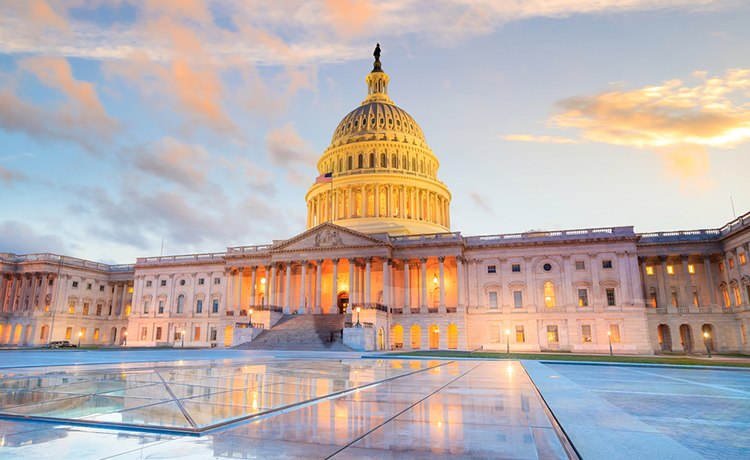Trump and Giuliani face first civil suit stemming from Capitol riots; violation of KKK Act is alleged

Image from Shutterstock.com.
A Mississippi congressman has filed a civil suit against former President Donald Trump and lawyer Rudy Giuliani that says they violated the Ku Klux Klan Act by seeking to interfere with the counting of Electoral College votes.
The Feb. 16 lawsuit by Democratic U.S. Rep. Bennie Thompson is the first civil suit filed against Trump in connection with the Jan. 6 Capitol riot, report Law.com, the New York Times and CNN.
Thompson is represented by the NAACP and Cohen Milstein Sellers & Toll.
Other lawsuit defendants are the right-wing extremist groups the Proud Boys and the Oath Keepers, whose members have been charged in the riots.
“Defendants Trump and Giuliani engaged in a concerted campaign to misinform their supporters and the public, encouraging and promoting intimidation and violence in furtherance of their common plan to promote the reelection of defendant Trump, even after the states had certified election results decisively showing he lost the election,” the suit says.
The suit says Trump is liable in his personal capacity because he “acted beyond the outer perimeter of his official duties.” The suit seeks damages and an injunction preventing the defendants from future violations of the law.
Joseph Sellers, chairman of Cohen Milstein’s civil rights and employment practice, told Law.com that the suit cites conduct by Trump that allegedly incited the riots. But the basis for the suit is the allegation that the defendants conspired to interfere with Congress’ duty to ratify the election results, he said.
CNN described the Ku Klux Klan Act as “a scarcely used” law that allows civil suits against those who use “force, intimidation or threat” to prevent officials from upholding the duties of their office.
Stephen Vladeck, a professor at the University of Texas School of Law, told CNN that the law “was specifically meant to provide federal civil remedies for federal officers who were prevented from performing their duties by two or more individuals, whether federal marshals in the post-Civil War South, federal judges in un-reconstructed lower courts or federal legislators.”
Vladeck said it’s not difficult to see how the law’s provisions “maps onto what happened on Jan. 6,” but the “harder question is whether Trump himself can be connected to that conspiracy.”
Sellers told Law.com that the lawyers and Thompson waited to file the suit until after the impeachment trial to avoid any distraction. The Senate did not get the two-thirds majority needed to convict Trump, although seven Republican senators voted to convict him.
See also:
ABAJournal.com: “Georgia lawyer in Capitol assault says mob was patriotic and heroic”
ABAJournal.com: “Lawyer fired after posting Capitol riot video sues to block ‘illegitimately elected Congress’”
ABAJournal.com: “ABA president condemns mob assault on Capitol as Rep. Gohmert asks SCOTUS to stop Pence”
ABAJournal.com: “Lawyer is arrested in Capitol assault after Facebook bragging”
ABAJournal.com: “Could Trump face charges for speech before Capitol riot? Experts differ on Brandenburg impact”
ABAJournal.com: “Lawyer loses his job after posting video of himself outside Capitol during riot”
ABAJournal.com: “Judge apologizes after posting photo with her husband in Capitol rioter costume”



